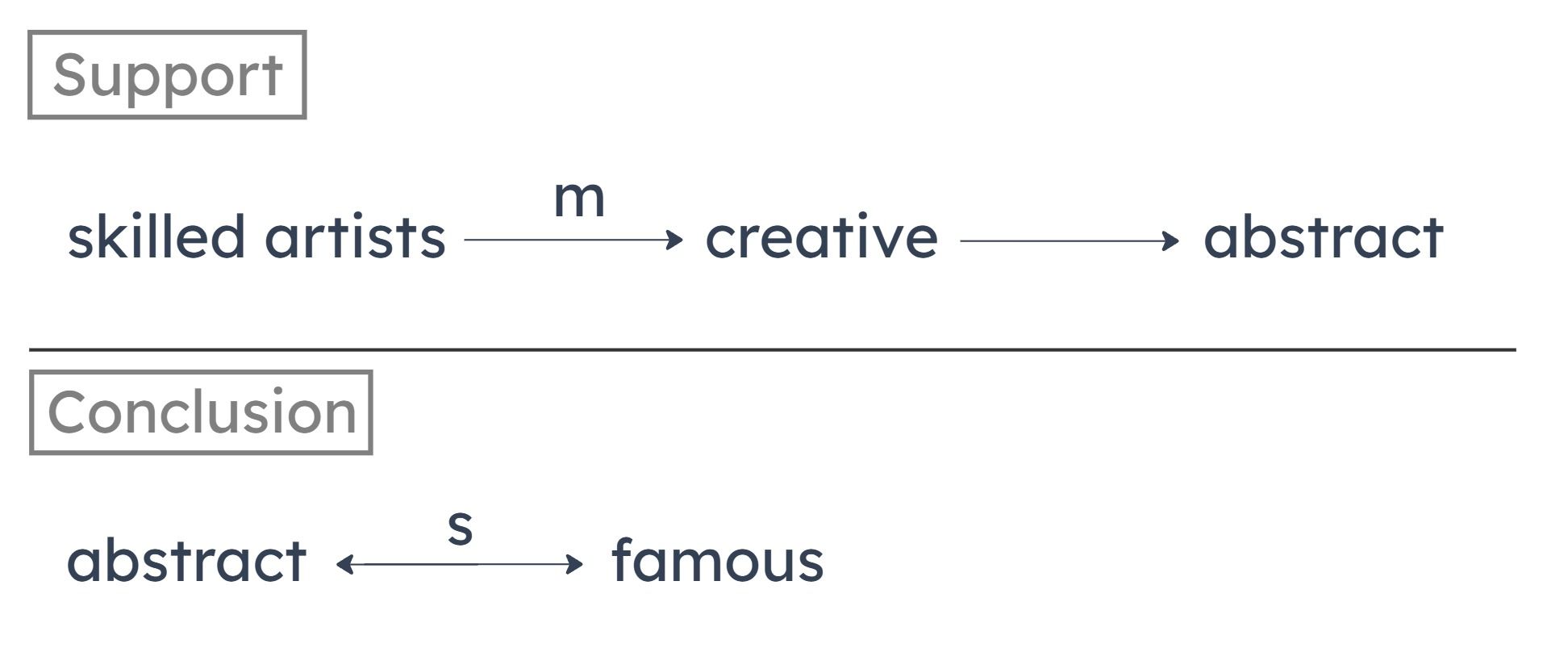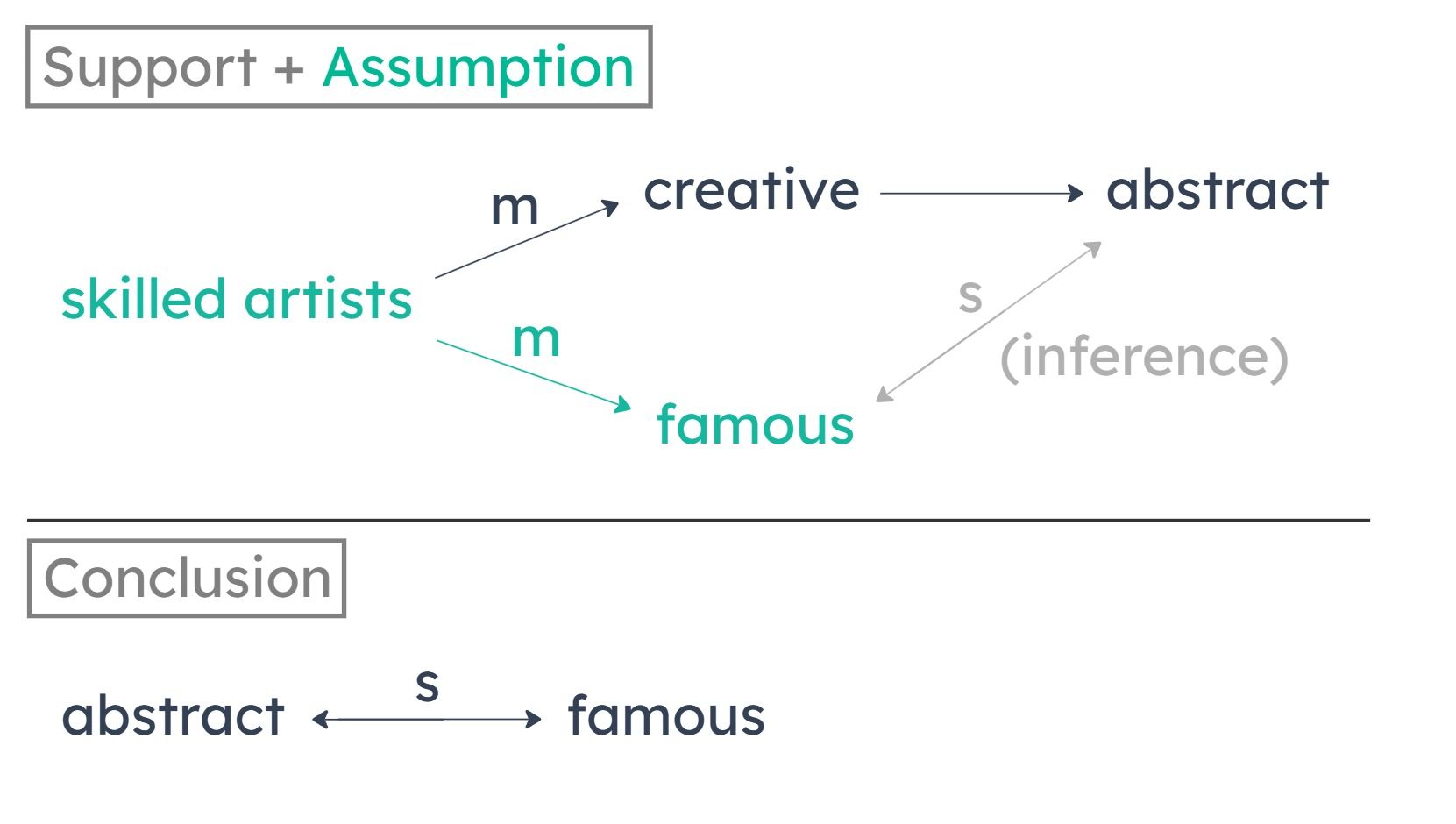This is based on the following premises:
Most skilled artists are very creative.
All people who are very creative are also good at abstract reasoning.
(The part about “not all” skilled artists being famous isn’t being used as a premise, because it doesn’t help prove a claim about some people being famous.)

Notice that “famous” is a new concept in the conclusion. We want to add something that will guarantee at least some of the skilled artists who are good at abstract reasoning are famous. For example:
Most skilled artists are famous.
Everyone who is very creative is famous.
A
Most skilled artists are good at abstract reasoning.
B
Most people who are very creative are skilled artists.
C
Some skilled artists are not famous.
D
All people who are good at abstract reasoning are very creative.
E
Most skilled artists are famous.

Politician: It is wrong for the government to restrict the liberty of individuals, except perhaps in those cases when to fail to do so would allow individuals to cause harm. Yet, to publish something is a liberty, and to offend is not to cause harm.
Summary
If failing to restrict a liberty would not cause harm, then it’s wrong for the government to restrict that liberty. (Contrapositive: if it’s not wrong for the government to restrict a liberty, then it must be that failing to restrict that liberty would cause harm.)
To offend isn’t something that causes harm.
Publishing something is considered a liberty.
Very Strongly Supported Conclusions
Failing to restrict any liberty (such as publishing something) that just involves offending people wouldn’t cause harm.
So it’s wrong for the government to restrict any liberty (such as publishing something) that just involves offending people.
A
It is not right for the government to restrict the publication of literature that is only offensive.
Very strongly supported. Publication is a liberty. So it’s wrong to restrict a publication if failing to restrict it would cause no harm. Offending is something that causes no harm. Thus it’s wrong to restrict a publication if its only issue is that it’s offensive.
B
It is not wrong for the government to restrict individuals’ liberty when failing to do so would allow individuals to cause harm.
Unsupported. We can only conclude when something is wrong, not when it’s not wrong. (B) makes a sufficiency-necessity swap. The stimulus actually tells us that when it’s not wrong for the government to restrict a liberty, then failing to restrict that liberty must cause harm.
C
It is offensive for the government to restrict the liberty of individuals to publish, but it is not harmful.
Unsupported. The stimulus doesn’t suggest what makes something offensive.
D
It is not wrong for individuals to publish literature that is offensive.
Unsupported. We can only conclude when something is wrong, not when it’s not wrong. Also, the stimulus doesn’t suggest what makes something wrong or not wrong for individuals. It only discusses what makes something wrong for the government.
E
It is not right for the government to restrict the publication of literature that does not cause serious harm.
Unsupported. The exception in the stimulus is triggered by any harm, not just serious harm. It’s possible for a publication to not cause serious harm while still causing some harm. So this publication might still trigger the exception, meaning the restriction might be acceptable.